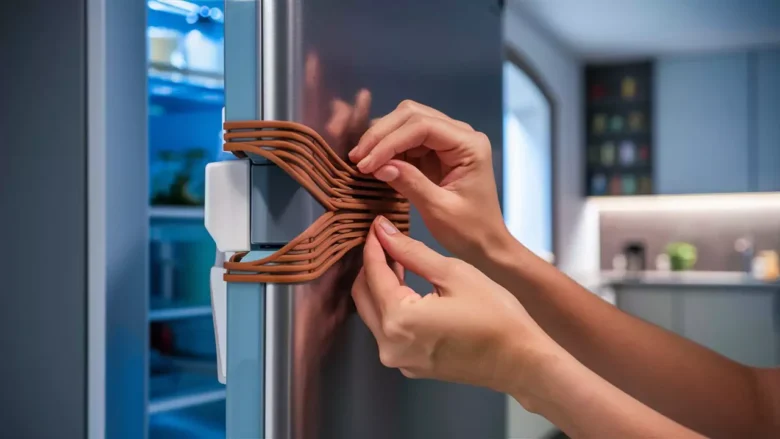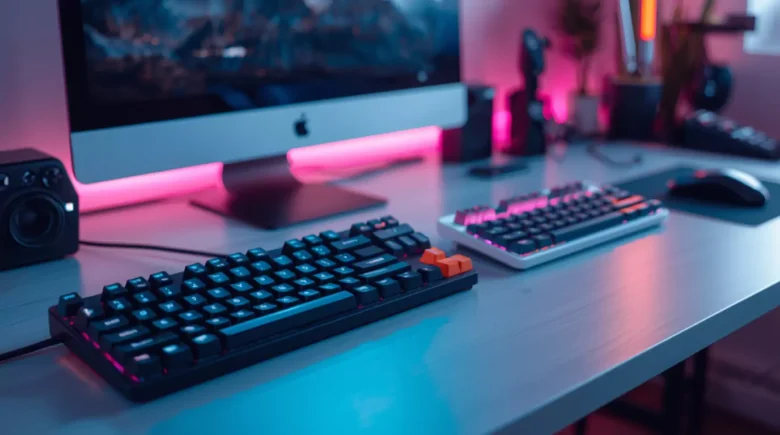You’re tired of being stuck with bad credit. You want a real credit card but keep getting rejected. And you’re wondering if secured credit cards that graduate to unsecured are actually worth your time.
- What Are Secured Credit Cards That Graduate to Unsecured?
- Why Most People Get This Wrong
- 💖 You Might Also Like
- The Best Secured Credit Cards That Actually Graduate
- Discover it® Secured Credit Card
- Capital One Platinum Secured Credit Card
- Citi® Secured Mastercard®
- Cards to Avoid (They Don’t Graduate)
- How to Graduate Faster (My Proven Method)
- Step 1: Pay Before the Due Date
- Step 2: Keep Utilization Under 10%
- Step 3: Set Up Autopay for More Than the Minimum
- Step 4: Use the Card Regularly
- Step 5: Request Credit Line Increases
- ✨ More Stories for You
- What Happens During Graduation Review
- Timeline: What to Expect
- Red Flags That Prevent Graduation
- Late Payments
- Maxing Out Your Card
- Applying for Too Many Cards
- 🌟 Don't Miss These Posts
- What to Do If Your Card Won’t Graduate
- Call and Ask Directly
- Consider a Different Strategy
- The Hidden Benefits of Graduation
- Common Mistakes That Kill Your Chances
- Mistake #1: Choosing the Wrong Card
- Mistake #2: Minimum Payments Only
- Mistake #3: Ignoring Your Credit Report
- Mistake #4: Getting Impatient
- Frequently Asked Questions
- Do all secured credit cards graduate to unsecured?
- How long does it take for a secured card to graduate?
- What credit score do I need for my secured card to graduate?
- Can I speed up the graduation process?
- What happens to my credit history when my card graduates?
- Do I need to apply for graduation?
- Can my secured card graduation be denied?
- Will my credit limit increase when my card graduates?
- My Personal Graduation Success Story
- Your Next Steps
- The Bottom Line
Here’s the truth: They absolutely are. But only if you pick the right ones.
What Are Secured Credit Cards That Graduate to Unsecured?
A secured credit card starts with you putting down a deposit. That deposit becomes your credit limit. Use it responsibly for 6-12 months. Then the card company reviews your account. If you’ve been good, they give you back your deposit. Your card becomes unsecured. Your credit limit often increases too.
It’s like training wheels for your credit.
Why Most People Get This Wrong
Most people think any secured card will graduate. Wrong. Some secured cards never graduate. They keep your money forever. Others have impossible graduation requirements.
I learned this the hard way when I helped my brother rebuild his credit after bankruptcy. He got stuck with a secured card that had zero graduation path. Wasted two years and $500 in deposits.
Don’t be like my brother.
💖 You Might Also Like
The Best Secured Credit Cards That Actually Graduate
Discover it® Secured Credit Card
This one’s my top pick. Here’s why:
- Automatic reviews starting at 8 months
- Cashback rewards (rare for secured cards)
- No annual fee
- Graduates to Discover it® Cash Back
I’ve seen people graduate in as little as 8 months with this card. The cashback feature makes it feel like a real credit card from day one.
Capital One Platinum Secured Credit Card
Capital One is aggressive about graduating cards. They want you to become an unsecured customer.
- Reviews for graduation starting at 6 months
- No annual fee
- Potential credit line increases before graduation
- Graduates to Capital One Platinum Credit Card
Citi® Secured Mastercard®
Citi doesn’t mess around. If you pay on time, they’ll graduate you.
- Regular account reviews
- No annual fee
- Graduates to an unsecured Citi card
- Reports to all three credit bureaus
Cards to Avoid (They Don’t Graduate)
Some secured cards are traps. They take your deposit and never give it back. Avoid these:
- OpenSky® Secured Visa® – No graduation path
- Applied Bank® Secured Visa® – Rarely graduates
- Most store-branded secured cards – Dead ends
How to Graduate Faster (My Proven Method)
Step 1: Pay Before the Due Date
Don’t just pay on time. Pay early. This shows you’re not struggling to make payments.
Step 2: Keep Utilization Under 10%
If your limit is $500, never carry more than $50. I know it’s tight. But this single move will boost your score faster than anything else.
Step 3: Set Up Autopay for More Than the Minimum
Automate payments for at least twice the minimum. Card companies love customers who pay more than required.
Step 4: Use the Card Regularly
Don’t let it sit in your wallet. Buy gas. Buy groceries. Small purchases that you pay off immediately.
Step 5: Request Credit Line Increases
Every 6 months, ask for a higher limit. Even if they say no, it shows you’re thinking like someone who deserves unsecured credit.
✨ More Stories for You
What Happens During Graduation Review
The card company looks at:
- Payment history (most important)
- Credit utilization
- Overall credit score improvement
- Income verification
- Other debts
They’re asking: “Would we approve this person for an unsecured card today?” If yes, you graduate. If no, they keep reviewing every few months.
Timeline: What to Expect
Months 1-3: Building payment history Months 4-6: Credit score starts improving Months 6-8: First graduation reviews begin Months 8-12: Most graduations happen here Month 12+: If not graduated, something’s wrong
Red Flags That Prevent Graduation
Late Payments
Even one late payment can delay graduation by 6+ months. Card companies see this as a massive red flag.
Maxing Out Your Card
Using 100% of your limit screams “desperate for credit.” Keep it under 30%. Under 10% is better.
Applying for Too Many Cards
Each application hits your credit. Focus on one secured card. Graduate first. Then expand.
🌟 Don't Miss These Posts
What to Do If Your Card Won’t Graduate
Sometimes cards get stuck. Here’s how to fix it:
Call and Ask Directly
“Hi, I’d like to know what I need to do to graduate to an unsecured card.” Get specific requirements. Get timelines. Get it in writing if possible.
Consider a Different Strategy
If your current card won’t budge after 18 months, it might be time to switch. Apply for an unsecured card elsewhere. If approved, close the secured card and get your deposit back.
The Hidden Benefits of Graduation
When your secured card graduates, you get:
- Your deposit back
- Higher credit limits
- Better rewards programs
- Lower interest rates
- Access to premium cards
But here’s the real win: You prove to yourself that you can handle credit responsibly. That confidence is worth more than any credit limit.
Common Mistakes That Kill Your Chances
Mistake #1: Choosing the Wrong Card
Not all secured cards graduate. Research before you apply.
Mistake #2: Minimum Payments Only
Minimum payments keep you trapped. Pay more whenever possible.
Mistake #3: Ignoring Your Credit Report
Check your credit monthly. Dispute errors immediately. Know your score before the card company reviews you.
Mistake #4: Getting Impatient
Good credit takes time. Rushing leads to mistakes. Stay consistent for 12+ months.
Frequently Asked Questions
Do all secured credit cards graduate to unsecured?
No. Many secured cards never offer graduation. Always check the card’s graduation policy before applying.
How long does it take for a secured card to graduate?
Most cards review accounts between 6-12 months. Graduation typically happens within the first year if you manage the account well.
What credit score do I need for my secured card to graduate?
Most cards look for a score above 600. But payment history on the secured card matters more than your overall score.
Can I speed up the graduation process?
Yes. Pay early, keep balances low, and use the card regularly. Some people graduate in as little as 6 months.
What happens to my credit history when my card graduates?
Your credit history stays the same. The account continues reporting to credit bureaus. Your credit age keeps growing.
Do I need to apply for graduation?
No. Most card companies review accounts automatically. But calling to express interest can help.
Can my secured card graduation be denied?
Yes. If your credit hasn’t improved enough, they’ll keep reviewing periodically. Focus on improving your credit fundamentals.
Will my credit limit increase when my card graduates?
Usually, yes. Most people see limit increases of 50-100% upon graduation.
My Personal Graduation Success Story
When I first got serious about credit, my score was 480. Bankruptcy had destroyed everything. I got the Discover it® Secured with a $500 deposit.
Here’s what I did:
- Set up autopay for $50 every month
- Used the card for gas only
- Paid the balance to zero every week
- Never went above $50 total spending
Eight months later, Discover called. They were graduating my card. Sending back my $500 deposit. Increasing my limit to $1,200.
That single graduation opened doors to better cards. Within two years, I had a 750+ credit score.
Your Next Steps
Here’s exactly what you should do right now:
- Choose one of the graduating cards I mentioned
- Apply with the highest deposit you can afford
- Set up automatic payments immediately
- Use the card for small, regular purchases
- Pay the balance weekly
- Check your credit score monthly
- Be patient for 6-12 months
The Bottom Line
Secured credit cards that graduate to unsecured aren’t just cards. They’re your pathway to financial freedom. But only if you choose the right one and use it correctly.
Don’t let bad credit define your future. Get a graduating secured card. Use it responsibly. Watch your credit transform.
Your future self will thank you for taking this step today.
























